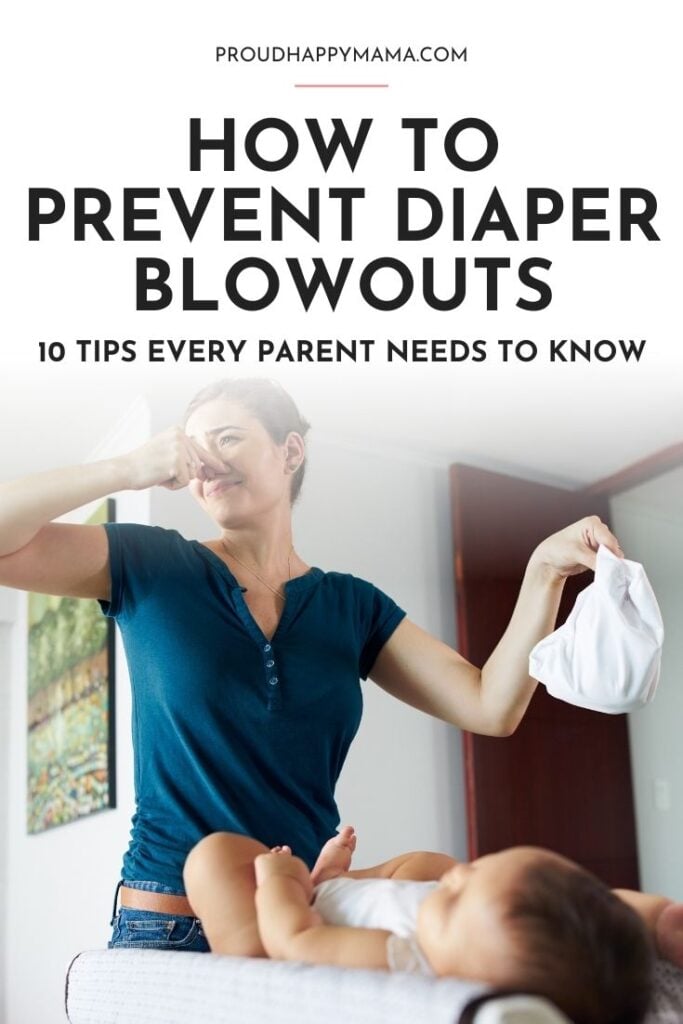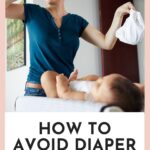How to Prevent Diaper Blowouts
Something that all parents universally dread are diaper blowouts; they’re the perfect way to ruin a good day or a trip to the store. Let alone ruin clothing and car seats.
So, figuring out how to prevent diaper blowouts is a key part of parenting.
A diaper blowout can happen at any time.
They are messy.
And something you don’t easily forget.
So, how to avoid diaper blowouts from happening? We have put together these 10 diaper blowout hacks so you can prevent these minor, and not so minor, disasters like a pro!
And if you love this guide on diaper blowouts, then make sure you check out these guides on how long can I leave on a wet diaper, best overnight diapers for babies and toddlers, and how much water does a diaper hold. Or even these best diapers to prevent blowouts.
What Is A Diaper Blowout?
A diaper blowout is something that all parents dread, but it’s part of diapering life. A blowout is when your baby’s poop explodes or leaks out of the diaper through the front, legs, or back. Some leaks are small, but they can reach right up to your baby’s neck – that’s not an exaggeration.
While horrific, diaper blowouts are typically avoidable. Most commonly diaper blowouts are due to the wrong sized diapers or dressing your baby in clothing that is too tight.
What Causes a Diaper Blowout?
Preventing diaper blowouts is possible because there are reasons for these accidents. They typically don’t occur for no reason at all, so if you know the causes of a diaper blowout, you can do your best to avoid one from happening in the future.
Here are the most common diaper blowout causes:
- Using the wrong size of diaper
- Wearing clothing that is too small
- Constipation
- Wearing a diaper that is too large
- Holding a baby wrong
- Picking the wrong diaper brand
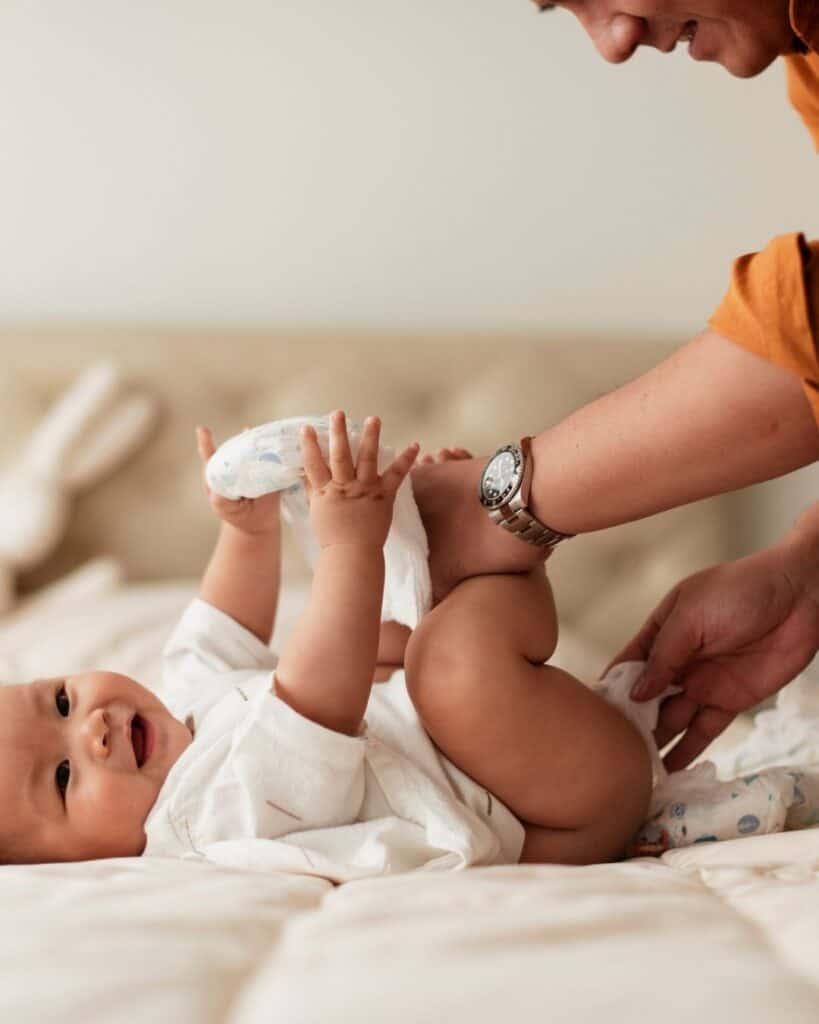
How To Prevent Diaper Blowouts
After you experience your first blowout, you’ll be determined never to let it happen again. Here are some of the most practical tips on how to prevent blowout diapers:
1. Make Sure You Use The Right Size Diaper
Diaper sizing is the first thing we recommend parents check especially if they are having constant diaper blowouts.
As your baby grows, you have to size up in diapers because a diaper that is too small won’t have enough absorbency to hold the poop or pee your baby produces. That leads to leaking up the back or around the legs.
Start by picking a diaper size based on your baby’s weight, and if your baby is on the upper weight limit, go up a size. It’s better to be in the lower weight range than the upper.
For example, if the size range is 12-20lbs and the next diaper range is 18-26lbs, I would size up when my baby is 18lbs rather than waiting for him to reach 20lbs.
Aside from weight, there are a few signs that you need to change diaper sizes, such as:
- The tape doesn’t come close to the center of the diaper but is at your baby’s side.
- You cannot run a finger through the waist elastics.
- Your baby has red marks near the waist elastic or leg elastics that don’t go away within 5 minutes of removal.
- The diaper doesn’t fully cover your baby’s bottom.
You may also like our guide on how long do babies wear size 1 diapers.
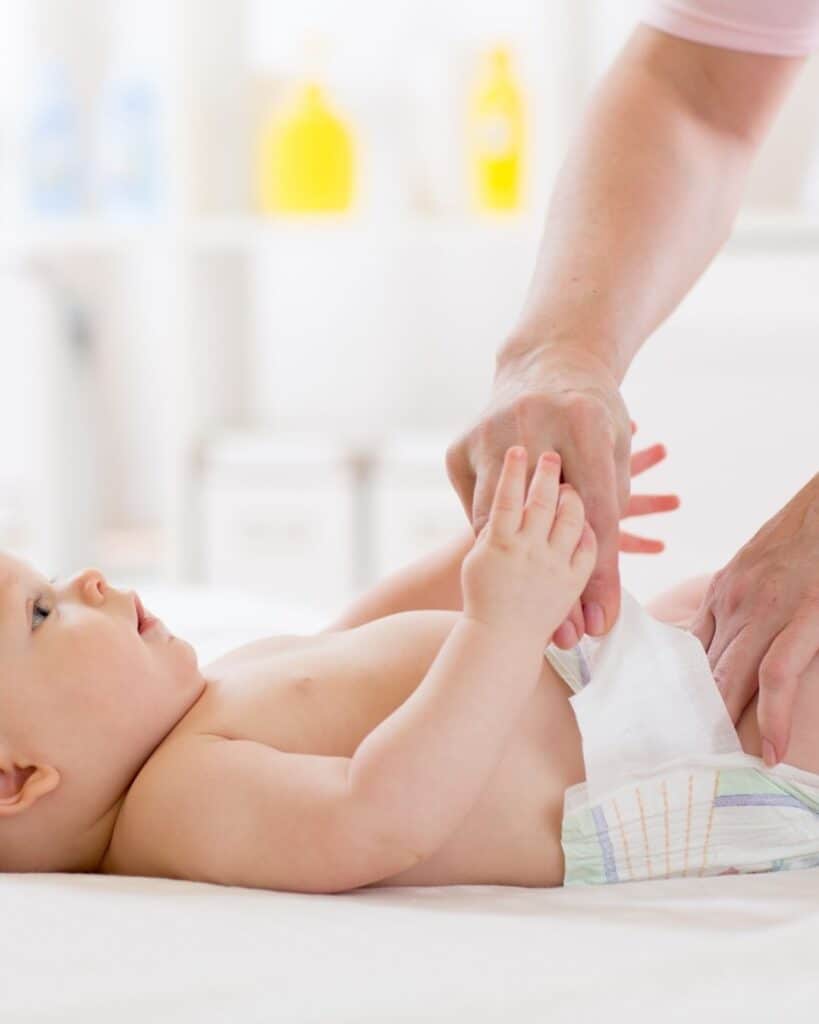
2. Secure The Diaper Correctly
If you have the correct size diaper, it still might leak if you put the diaper on incorrectly. The back of the diaper needs to be even with your baby’s belly button. Make sure your baby boy’s penis is tucked down, and fasten the diaper snugly with tabs. You should be able to fit 1-2 fingers into the waistband comfortably, but it shouldn’t be too loose.
3. Make Sure Leg Cuffs Are Untucked
Before ending your diaper changing session, make sure you run a finger through the leg cuffs or gussets that are around your baby’s legs. They need to be pulled gently outwards; these are one simple solution that diaper companies add to diapers to protect against leaks. The cuffs catch the poop before they come entirely out of the diaper.
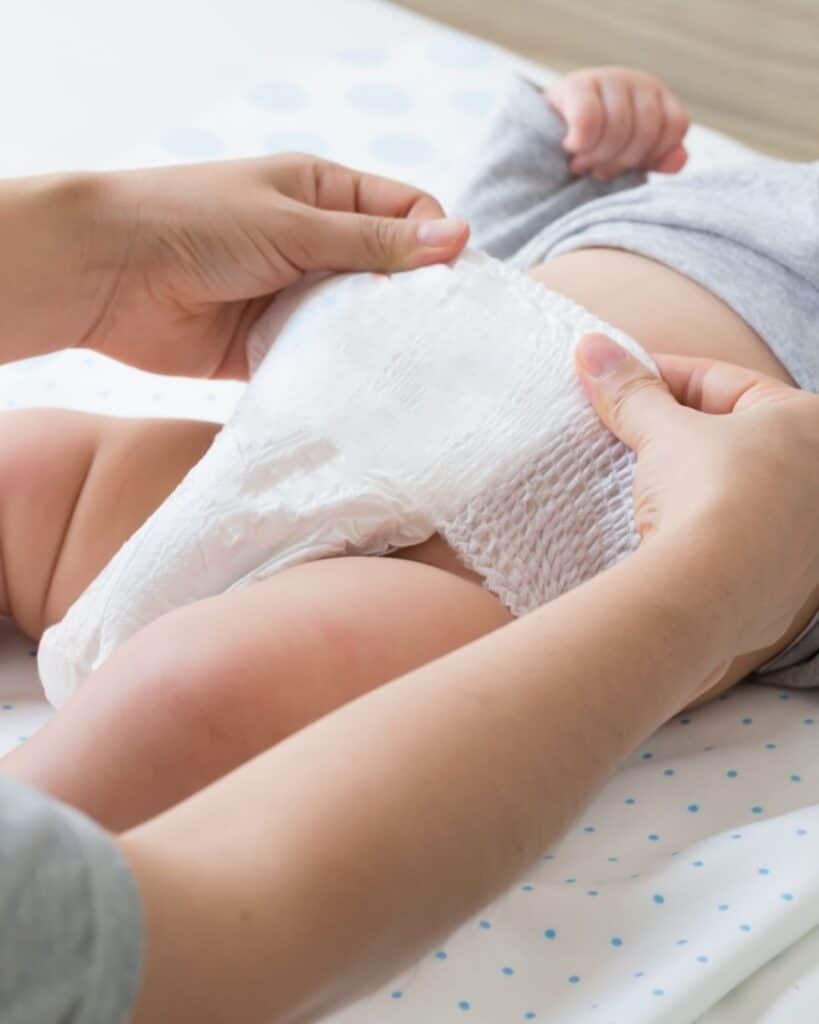
4. Try Diapers with Better Waistbands
Not all diapers are the same. Each diaper brand is suited for different babies based on what they need around their waists or legs.
If your baby has thin legs, you want diapers designed for that. The size of the diaper doesn’t always determine the right fit; the brand of the diaper matters as well.
Some diapers have better waistbands; they might have more or less elastic, and some have pockets on the back of the waistband to catch poop that comes up the back.
5. Don’t Use Tight Clothing
Tight onesies or clothing increase the risk of a diaper blowout because they apply pressure to the diaper. It’s like a sponge; once the diaper is full, anything in the diaper will come rushing out if you apply pressure.
So, if you have a tight onesie on your baby and they poop, the clothing will squeeze out the urine or poop. It’s best to size up in clothing, especially onesies and pants, whenever you notice that your baby is getting to the end of the size range.
6. Use Diaper Extenders
Diaper extenders are sometimes called diaper blowout blockers, and they protect your baby’s clothes and car seat from diaper explosions. Instead of needing to wash your baby’s car seat, you just toss the diaper extender into the washer. It’s a lot easier, and while this isn’t solving the issue and avoiding diaper blowouts entirely, it makes cleaning up easier.
7. Be Ready After Constipation
Any parent can tell you that the poop after constipation is often scary, especially if your baby has been backed up for a few days. If you give your baby a laxative or juice, be prepared for a huge poop. Change your baby often and watch for signs that your baby is pooping so you can change it before it leaks everywhere.
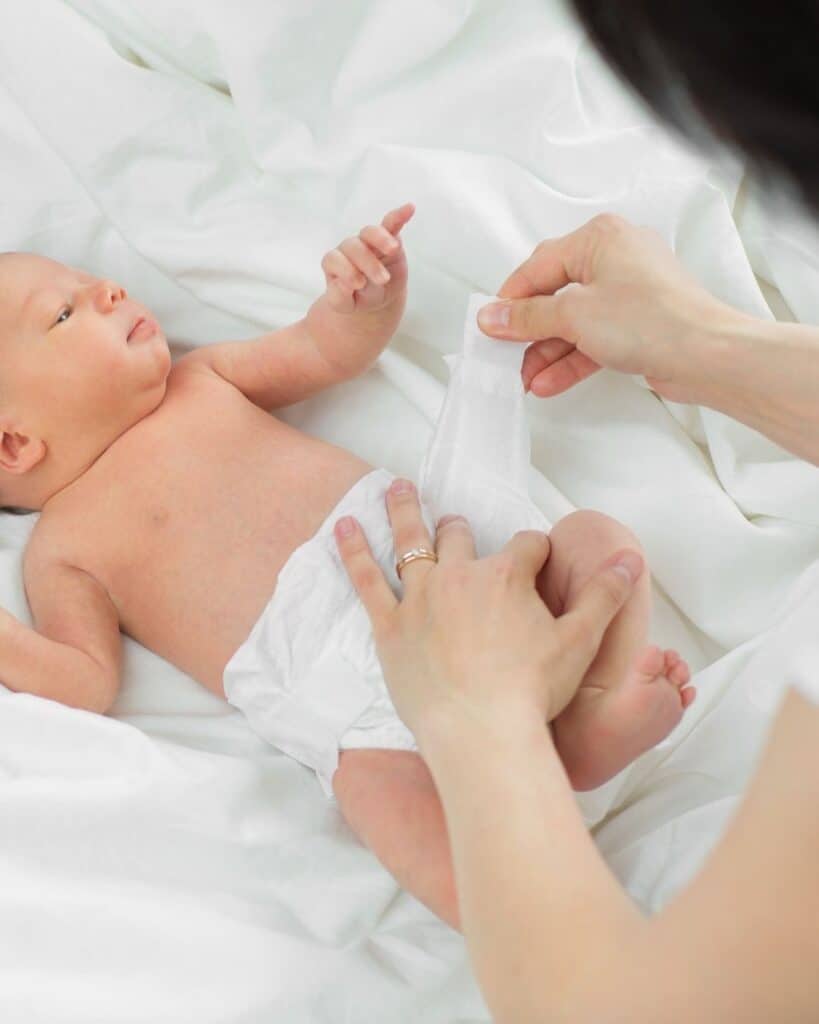
8. Change Your Baby Regularly
A diaper that is wet and full increases the risk of a poop explosion because the wet diaper cannot handle any more moisture. It has no more space to absorb poop. So, changing your baby on a regular schedule drastically decreases the risk of a diaper blowout.
In general, infants need to be changed every two to three hours. Older infants might need to be changed every three to four hours, but it depends. Check your baby’s diaper regularly to see if it’s too wet.
9. Try Cloth Diapers
Cloth diapers aren’t possible for all parents. Still, if you can switch, it may drastically reduce the number of diaper blowouts and leaks that you experience. Fewer diaper blowouts are a bonus of cloth diapering that not all parents talk about. Cloth diapers have better elastic that goes around your baby’s legs and waists that are more likely to keep poop explosions inside the diaper.
Some parents have been known to also use a diaper cover to prevent blowouts whilst using disposable diapers.
10. Know Your Baby’s Pooping Schedule
Most babies poop on a schedule; it’s similar to adults. Knowing when your baby will poop is helpful; you can be ready and pay attention to his signs. You might change your baby’s diaper right beforehand, so it’s not full and avoid any tight clothing.
FAQS On Diaper Blowouts
Most commonly diaper blowouts are due to the wrong sized diapers that are not a snug fit or dressing your baby in clothing that is too tight. While horrific, diaper blowouts are typically avoidable. Try moving to the next diaper or clothing size.
If your baby is experiencing regular leak throughs or diaper blowouts this could be a telltale sign that your diaper is too small for your child. It is a good time to try sizing up your diaper to the next size to see if that eliminates the problem.
Cloth diapers help prevent diaper blowouts as they have better elastic that goes around your baby’s legs and waists that are more likely to keep poop explosions inside the diaper. Additionally, the use of a diaper cover can also assist in containing blowouts.
Final Thoughts On How To Stop Diaper Blowouts
Once you figure out how to stop diaper blowouts, you never have to worry about a ruined car seat or stained clothing again. Diaper explosions are fun for no one, so make sure they don’t happen anymore.
And if you’re looking for more great diapering guides, then check out these guides on diapers vs pullups, are pull ups as absorbent as diapers, how do swim diapers work, and diaper buying guide.
